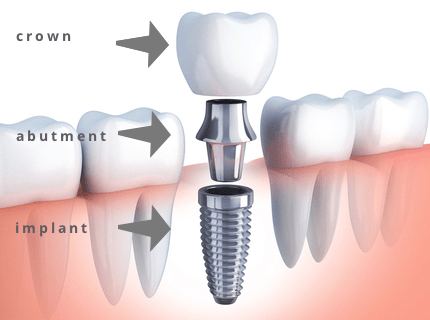
Cosmetic dentistry is more popular than ever, with procedures ranging from whitening and contouring to filling gaps and replacing teeth. And there are several tools and procedures that we may utilize to improve the appearance of your smile. Cosmetic dentistry is the most well-known dental field in today’s medical world, and it has achieved new heights in popularity. It focuses on giving the patient an attractive smile by utilizing a variety of dental instruments and procedures.
One such advanced and popular treatment in cosmetic dentistry is teeth whitening, which includes dental cleaning. The aim is to provide a healthy and shiny smile. In this blog, we will be learning more about teeth whitening and the steps of the procedure. To make this an informative post, we have gathered insights from experts in cosmetic dentistry, like the top dentist in Gurgaon at Aspen Dental Clinic. Let’s begin by learning what teeth whitening is.
What is Teeth Whitening?
Teeth whitening is one of several cosmetic dentistry procedures experts provide to brighten your smile and boost your confidence. The dentist will safely whiten your teeth up to many shades by using a professional whitening solution. It’s quick, and simple, and won’t harm your teeth or gums when you use dentist-approved procedures.
What is the Teeth Whitening Procedure Like?
Teeth whitening can lighten your smile by multiple shades in only one visit.
Step 1: Before starting the treatment, the doctor will examine the teeth and gums to ensure they are healthy. Then, will discuss with the patient about tooth color and how brilliant you want your smile to be. After that, your teeth are cleaned to eliminate plaque.
Step 2: The teeth are dry, and you may need to use a retractor to protect the lips and tongue from interfering with the whitening solutions. To protect the gums, the dentist will apply a gel or a shield.
Step 3: A whitening solution is applied to the front surface of the teeth, and a unique light activates the whitening process! The doctor will continuously monitor the progress of the treatment until the desired outcome is achieved.
Step 4: Then they rinse away the solution and perhaps add fluoride to help with tooth sensitivity.
Step 5: Once the doctor is through, they will go over post-care, such as what foods and drinks to avoid for the following several hours to keep the new smile as white as possible.
Is the Teeth Whitening System Effective on Dentures or Veneers?
The procedure was created to improve the natural whiteness of the enamel. Existing fillings, dentures, crowns, bonding, veneers, and bridges do not lighten. If a bleaching procedure is used, any previous dental work may need to be changed to match the new tooth hue attained in the natural teeth. Clients often apply the gel treatment exclusively to their natural teeth, enabling them to lighten to match a cap, crown, or veneer.
How Long Does the Teeth Whitening Procedure Take?
To get a whiter and brighter smile, the process takes approximately 30 minutes (2 times 15 minute applications). It is divided into two 15-minute applications to provide maximal gel concentration and light exposure without being exposed to the light for too long, which might cause gum inflammation.
Individuals with sensitive teeth should use a lower power level on the bleaching device, and those with particularly thick stains may require multiple treatment sessions.
Is Teeth Whitening Harmful to the Teeth?
The teeth whitening procedures do not harm tooth enamel or dentin in the short or long term. In the clinic, the doctor can assist in preserving the gums throughout the process. Alternatively, if you use over-the-counter at-home tooth whitening solutions, the bleaching chemical may leak out into your gums. When in doubt, consult with our dentist to ensure a safe and complete application.
How can I Extend the Life of my Teeth Whitening Results?
Fortunately, there are a few things you can do to keep your teeth whitening. To begin, avoid foods and beverages that can stain your teeth, such as coffee, tea, soda, berries, and anything tomato-based. If you do choose to consume certain foods and beverages, be careful to rinse your mouth or brush your teeth afterward. Finally, brushing your teeth twice a day and getting bi-annual dental cleanings can help prevent stains from accumulating on your teeth.
How much Whiter can I Anticipate my Teeth to Become after Teeth Whitening?
The degree of whitening varies from client to client and cannot be anticipated or guaranteed; nonetheless, teeth may lighten anywhere from 6 to 12 shades on the whitening shade chart in ordinary use. The outcome is heavily influenced by how discolored the teeth were, to begin with. Teeth that are yellow or brown, have surface stains, or are consistently discolored are the simplest to whiten. Additional whitening treatments may be required to attain the ideal shade, especially if the teeth are highly discolored.
Conclusion
To get any cosmetic dentistry treatment it is important to always consult a qualified dentist. This will help in knowing which treatment will provide one with the maximum results. It also ensures the safety and overall well being of the teeths. To know more about teeth whitening or any other dental treatment, one can consult the expert dentist of Aspen Dental, a clinic renowned for offering best teeth whitening in Gurgaon. To get that radiant and flawless smile now, book a consultation at Aspen Dental now!





